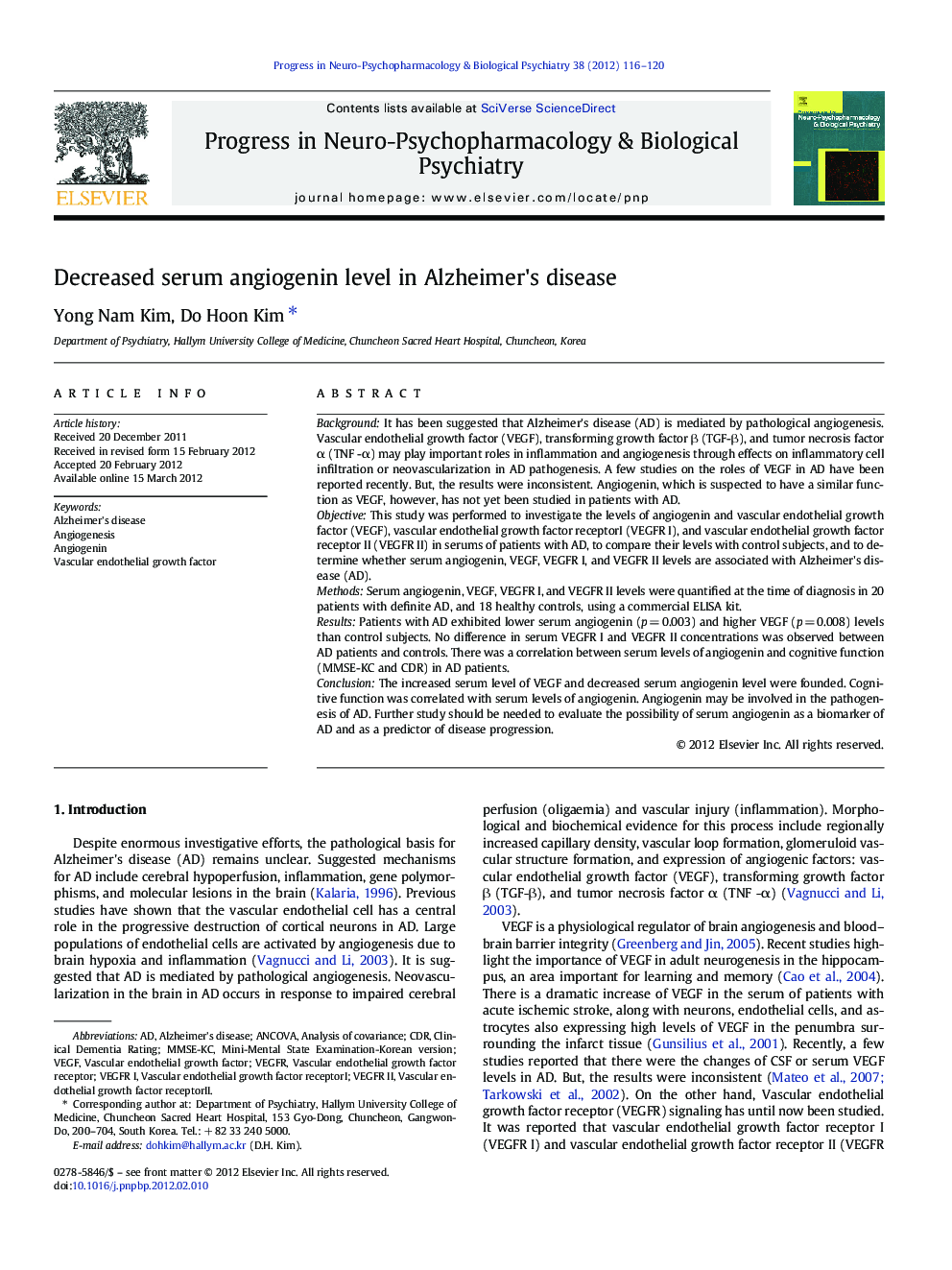| کد مقاله | کد نشریه | سال انتشار | مقاله انگلیسی | نسخه تمام متن |
|---|---|---|---|---|
| 5845027 | 1128040 | 2012 | 5 صفحه PDF | دانلود رایگان |

BackgroundIt has been suggested that Alzheimer's disease (AD) is mediated by pathological angiogenesis. Vascular endothelial growth factor (VEGF), transforming growth factor β (TGF-β), and tumor necrosis factor α (TNF -α) may play important roles in inflammation and angiogenesis through effects on inflammatory cell infiltration or neovascularization in AD pathogenesis. A few studies on the roles of VEGF in AD have been reported recently. But, the results were inconsistent. Angiogenin, which is suspected to have a similar function as VEGF, however, has not yet been studied in patients with AD.ObjectiveThis study was performed to investigate the levels of angiogenin and vascular endothelial growth factor (VEGF), vascular endothelial growth factor receptorI (VEGFR I), and vascular endothelial growth factor receptor II (VEGFR II) in serums of patients with AD, to compare their levels with control subjects, and to determine whether serum angiogenin, VEGF, VEGFR I, and VEGFR II levels are associated with Alzheimer's disease (AD).MethodsSerum angiogenin, VEGF, VEGFR I, and VEGFR II levels were quantified at the time of diagnosis in 20 patients with definite AD, and 18 healthy controls, using a commercial ELISA kit.ResultsPatients with AD exhibited lower serum angiogenin (p = 0.003) and higher VEGF (p = 0.008) levels than control subjects. No difference in serum VEGFR I and VEGFR II concentrations was observed between AD patients and controls. There was a correlation between serum levels of angiogenin and cognitive function (MMSE-KC and CDR) in AD patients.ConclusionThe increased serum level of VEGF and decreased serum angiogenin level were founded. Cognitive function was correlated with serum levels of angiogenin. Angiogenin may be involved in the pathogenesis of AD. Further study should be needed to evaluate the possibility of serum angiogenin as a biomarker of AD and as a predictor of disease progression.
⺠It has been suggested that AD is mediated by pathological angiogenesis. ⺠Patients with AD showed increased serum VEGF levels. ⺠Serum angiogenin levels were decreased in patients with AD. ⺠Cognitive function was correlated with serum angiogenin levels in AD patients. ⺠These findings implicate that angiogenin may be involved in the pathogenesis of AD.
Journal: Progress in Neuro-Psychopharmacology and Biological Psychiatry - Volume 38, Issue 2, 7 August 2012, Pages 116-120